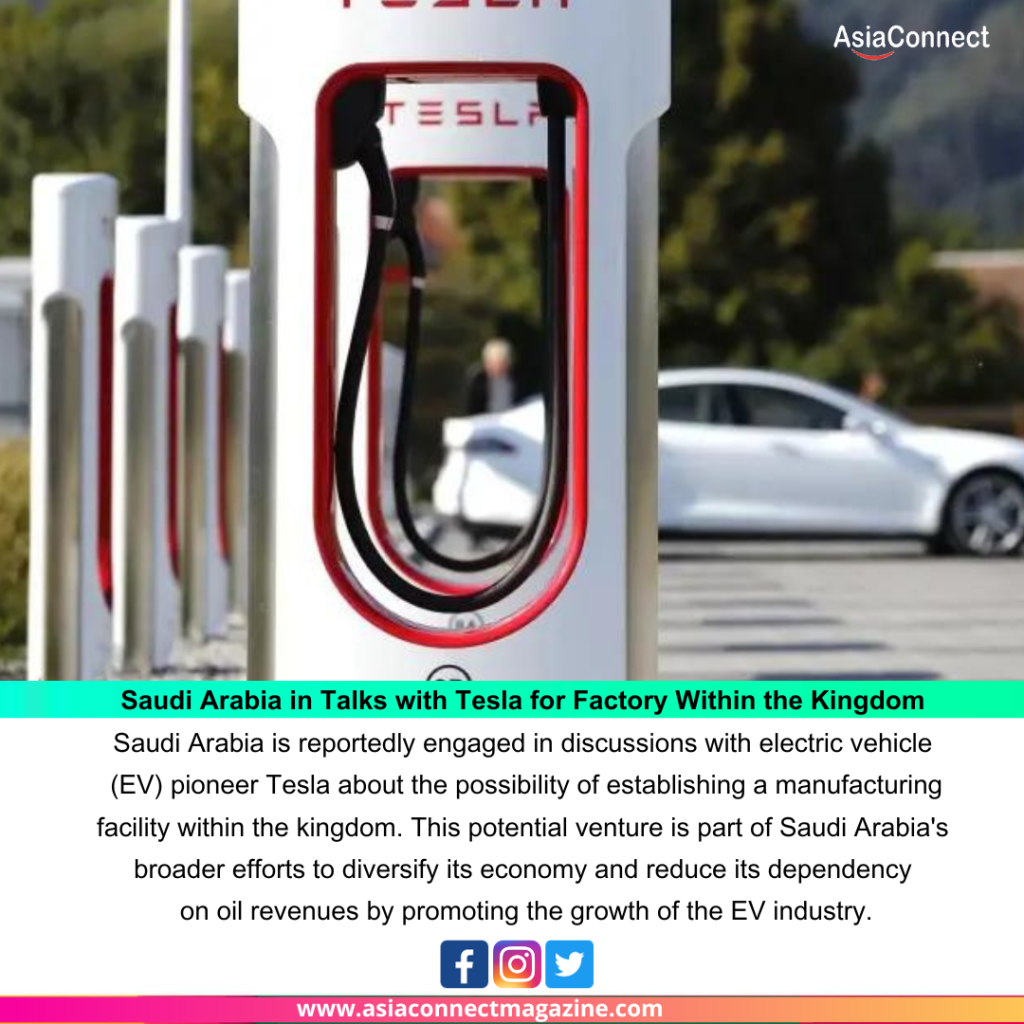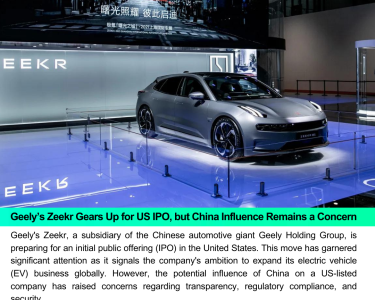
Saudi Arabia is reportedly engaged in discussions with electric vehicle (EV) pioneer Tesla about the possibility of establishing a manufacturing facility within the kingdom. This potential venture is part of Saudi Arabia’s broader efforts to diversify its economy and reduce its dependency on oil revenues by promoting the growth of the EV industry.
Key Points of the Talks Between Saudi Arabia and Tesla:
- Strategic Partnership: Saudi Arabia’s government is actively exploring a strategic partnership with Tesla that would involve the construction of a production facility within the country’s borders. Such a partnership aligns with Saudi Arabia’s Vision 2030 plan, which aims to transform the nation into a hub for advanced industries.
- Economic Diversification: Saudi Arabia has long recognized the need to diversify its economy beyond oil. The country’s leadership views the EV sector as a promising area for investment and development, given the global shift toward sustainable transportation.
- Reducing Oil Dependency: The Saudi government’s investment in EVs is motivated by the desire to reduce its reliance on oil revenues, which have been subject to price volatility and market fluctuations. EVs represent a more sustainable and economically resilient industry.
- Boosting Local Manufacturing: A partnership with Tesla could stimulate local manufacturing, job creation, and technology transfer. By manufacturing EVs in Saudi Arabia, the country can nurture a domestic industry and reduce import dependency.
- Market Potential: The Middle East, including Saudi Arabia, presents a significant market potential for EVs due to the growing awareness of environmental sustainability and the push for clean energy solutions. Establishing local manufacturing can cater to this demand.
- EV Infrastructure: To support the growth of EVs, Saudi Arabia has also been working on developing charging infrastructure and incentives to encourage EV adoption. This includes installing charging stations across the country.
- Global Expansion: For Tesla, establishing a manufacturing presence in Saudi Arabia could be part of its broader global expansion strategy. Local production can reduce costs and facilitate access to the Middle East and North African markets.
- Environmental Impact: The adoption of electric vehicles in Saudi Arabia can contribute to reducing greenhouse gas emissions and air pollution, aligning with global environmental goals.
Challenges and Considerations:
While the talks between Saudi Arabia and Tesla hold promise, several challenges and considerations must be addressed:
- Regulatory Framework: Establishing an automotive manufacturing facility in Saudi Arabia would require navigating regulatory and legal frameworks.
- Infrastructure Development: Investment in infrastructure, such as factories and supply chains, will be essential to ensure the success of local manufacturing.
- Technology Transfer: Negotiations may involve technology transfer agreements, which require careful consideration and protection of intellectual property.
- Global Competition: Tesla faces competition from other automakers in the EV space, and the success of a Saudi facility would depend on the brand’s appeal in the local market.
- Market Dynamics: Consumer preferences, incentives, and market dynamics in Saudi Arabia and the broader region will impact the demand for EVs.
Conclusion:
The talks between Saudi Arabia and Tesla regarding the establishment of an EV manufacturing facility represent a significant step in the kingdom’s economic diversification efforts. By investing in the EV industry and promoting local manufacturing, Saudi Arabia aims to reduce its reliance on oil revenues, create jobs, and contribute to a more sustainable and technologically advanced economy. However, the success of such a venture will depend on successful negotiations, regulatory developments, and the ability to capture the growing market for electric vehicles in the Middle East.




